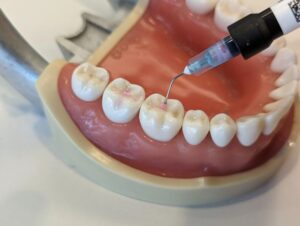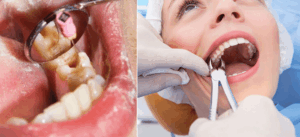Maintaining healthy teeth and gums requires regular dental visits and good daily habits. Most people need to see the dentist every six months for check-ups and cleanings. Your local dentist can help catch problems early before they become serious. Some individuals may require more frequent visits, depending on their specific needs. This guide explains why regular dental visits are important and how often you should schedule them.
Importance of Regular Dental Check-ups
Regular dental visits are crucial for maintaining your mouth’s health and preventing problems before they arise. When you visit the dentist regularly, they can detect issues like cavities or gum disease early, before they worsen and become more severe. These visits include professional cleanings that remove plaque and tartar that regular brushing and flossing can’t remove. Your dentist can also give you tips on how to take better care of your teeth at home and what foods to eat or avoid. During these visits, your dentist monitors your oral health over time and can adjust your treatment plan as needed. Regular dental visits are an essential part of maintaining your overall health.
Recommended Frequency of Dental Visits
Most people should visit the dentist every six months to maintain the health of their teeth and gums. These twice-yearly visits help catch any problems early, which stops them from getting worse and more expensive to fix. However, some people may need to go more often, as recommended by their dentist. Factors such as your age, the frequency of your dental cleanings, and other health conditions can influence how often you need to visit. Following your dentist’s recommended schedule helps ensure your mouth stays healthy and any problems are addressed promptly. This leads to a healthier smile and fewer dental problems down the road.
Preventive Measures for Oral Health
Taking good care of your teeth every day helps prevent dental problems in the future. Simple daily habits can make a big difference in your oral health:
- Brush your teeth twice a day with fluoride toothpaste to remove plaque and prevent cavities
- Floss daily to clean between teeth where your toothbrush can’t reach
- Use mouthwash to kill bacteria that cause bad breath and gum problems
- Visit your dentist office every six months for check-ups and professional cleanings
- Eat a healthy diet with less sugar and more calcium-rich foods like milk and cheese
These simple steps, combined with routine dental services, create a strong foundation for healthy teeth and gums.
Benefits of Routine Dental Care
Regular dental care helps maintain your mouth’s health and supports your overall well-being. Regular check-ups and cleanings can help prevent oral health problems from worsening. These visits allow your dentist to detect issues like cavities or gum disease early, so they can be treated before they become serious. Professional cleanings remove plaque and tartar that regular brushing and flossing miss, which reduces your risk of tooth decay and gum problems. Regular dental care also helps keep your breath fresh, your smile bright, and gives you confidence about your oral health. Making routine dental care a priority is crucial for maintaining optimal oral health and overall wellness.
Tips for Maintaining Oral Hygiene
Good daily habits are the foundation of a healthy mouth. Here are simple ways to keep your teeth and gums in great shape:
- Brush your teeth at least twice a day with fluoride toothpaste, spending two minutes each time
- Make sure to brush all surfaces of your teeth using the right technique
- Floss every day to remove plaque and food particles between teeth
- Use antimicrobial mouthwash to kill bacteria and freshen breath
- See your dentist regularly for professional cleanings and check-ups
- Limit sugary foods and drinks that can cause tooth decay
- Don’t use tobacco products, which can cause gum disease and other problems
- Drink plenty of water to help wash away food particles and bacteria
Following these simple practices every day will help keep your smile healthy for years to come.
Related Topics:






